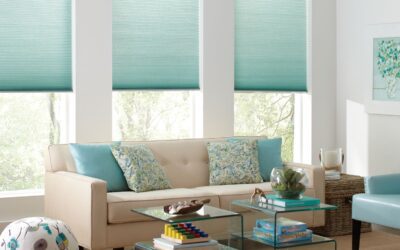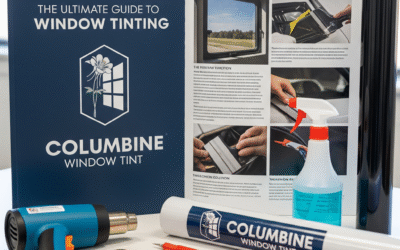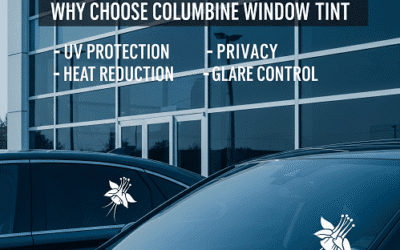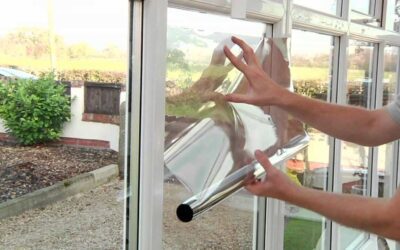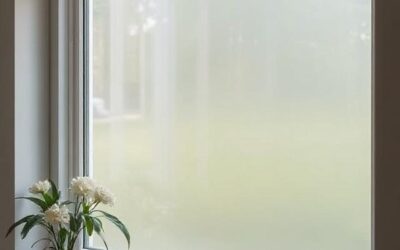Best Practices for Cleaning Tinted Office Windows
Office window films have become a crucial component for both aesthetic and functional purposes in business settings. These films provide privacy, control the sun’s harmful rays, and even offer decorative elements to the space. Common types include solar control films, privacy films, and decorative films. Each of these brings unique benefits to a commercial environment, but they require proper cleaning techniques to maintain their appearance and performance. Failing to properly clean them could lead to degradation of the film, reducing its efficiency and lifespan.
Why Proper Cleaning of Tinted Windows Matters
Proper cleaning and maintenance are essential for extending the life of window films. Unlike regular windows, tinted films come with their own cleaning requirements to prevent damage. Harsh chemicals, abrasive tools, and improper techniques can degrade the film’s protective layers, reducing its effectiveness. Additionally, well-maintained tinted windows retain their polished look, contributing to the overall aesthetics of a commercial building. Clean, well-maintained windows make an office appear professional and create a welcoming atmosphere for both employees and clients.
Beyond aesthetics, keeping window films clean ensures they perform at their optimal level, whether it’s for UV protection, privacy, or energy efficiency. When the film is damaged due to improper cleaning, it loses some of its protective abilities, leaving the office space vulnerable to excess heat, glare, and UV radiation.
Understanding Different Types of Window Tinting
There are several types of window films used in offices, each with its own cleaning requirements. Understanding these types can help you select the proper cleaning methods that won’t damage the films.
- Solar Control Films: These are used to regulate temperature and glare, as well as block harmful UV rays. They are commonly installed in offices to save on energy costs and improve the working environment. Due to the coating on solar control films, abrasive scrubbing or harsh chemicals can cause irreversible damage.
- Privacy and Decorative Films: These films are mainly used to enhance privacy or to add a decorative touch to office windows. While cleaning privacy or decorative films, extra care must be taken to avoid scratching or peeling the decorative patterns, which are often more delicate than traditional solar films.
- Security Window Films: Security films are thicker and more durable as they are used to provide additional protection against break-ins or accidents. Despite their added strength, they are still susceptible to scratches and can lose their clarity over time if not cleaned properly.
Best Tools for Cleaning Tinted Office Windows
The right tools are vital for keeping tinted office windows clean without damaging the film. Avoid rough materials or anything that can scratch the surface.
- Microfiber Cloths: These are soft, absorbent, and perfect for cleaning window films without scratching. Microfiber is gentle on tinted films and picks up dirt without causing any abrasions or streaks.
- Soft Sponges and Non-abrasive Cleaning Tools: If there are more stubborn spots, soft sponges can help lift dirt and grime without harming the window films. Never use scouring pads or anything with a rough texture.
- Squeegees: Squeegees are useful for achieving a streak-free finish. Opt for rubber-edged squeegees, as hard plastic or metal squeegees may scratch the window film.
Choosing the Right Cleaning Solutions
Selecting the right cleaning solution can make all the difference in preserving the longevity of window films. Certain chemicals can erode or discolor films, reducing their effectiveness.
- Safe Cleaning Products for Window Films: Use mild, non-ammonia-based solutions when cleaning tinted windows. Ammonia can be corrosive and weaken the adhesives that keep the film attached to the glass, leading to peeling or bubbling over time.
- DIY Cleaning Solutions vs. Commercial Products: A simple DIY solution of water and mild soap works well for tinted windows. Mix water with a small amount of dish soap and use this mixture to gently clean the window films. Commercial products specifically made for window films are also a good option, as they are designed not to damage the film.
- Avoiding Harsh Chemicals and Abrasive Cleaners: Never use bleach, ammonia, or acidic cleaners on tinted films. These chemicals will damage the film’s surface, causing it to peel, discolor, or weaken. Similarly, avoid abrasive powders or cleaners that can scratch the film.
Step-by-Step Guide to Cleaning Tinted Office Windows
Properly cleaning tinted windows is a simple process, but it requires attention to detail to prevent damaging the film. Here’s a step-by-step guide to achieving clean and streak-free tinted windows:
- Step 1: Preparing the Windows: Start by dusting the windows with a soft, dry cloth to remove any loose dirt and debris. This prevents the dust from scratching the window film when you start cleaning.
- Step 2: Applying the Cleaning Solution: Spray your mild cleaning solution (water and soap or a commercial cleaner) onto the window. Be sure to apply a light mist rather than drenching the surface.
- Step 3: Wiping the Windows: Use a microfiber cloth or soft sponge to gently wipe the windows in a horizontal or vertical motion. Avoid circular motions, which can cause streaking.
- Step 4: Squeegeeing for a Streak-free Finish: Use a rubber-edged squeegee to remove the cleaning solution from the window. Start at the top and work your way down, wiping the squeegee with a clean towel between each pass.
- Step 5: Drying and Finishing: After squeegeeing, wipe down the window edges and any remaining moisture with a dry microfiber cloth to prevent streaks.
Common Mistakes to Avoid When Cleaning Tinted Windows
While the process of cleaning tinted windows seems straightforward, there are common mistakes that can damage your window films. Here are some to avoid:
- Using Harsh Scrubbing Materials: Never use abrasive materials like steel wool, rough sponges, or scrubbing pads. These can scratch the film and create permanent damage.
- Applying Too Much Pressure on the Film: Be gentle while cleaning. Excessive force can weaken the adhesive of the film, leading to bubbles or peeling. Light, even pressure is sufficient for most cleaning tasks.
- Ignoring Small Scratches and Stains: Over time, small scratches and stains can worsen if left untreated. When noticed early, these can often be cleaned or treated to avoid larger issues later on.
Seasonal Cleaning and Maintenance Tips for Tinted Windows
Different seasons pose different challenges for maintaining tinted windows. Following these seasonal tips will help ensure your window films stay in excellent condition year-round.
- Summer vs. Winter Window Maintenance: During summer, tinted windows often accumulate more dust and debris, especially in high-traffic office environments. Regular light cleaning during this season will help maintain clarity and performance. In winter, condensation can form on windows. Always dry the windows thoroughly after cleaning to prevent water spots.
- Preventing Hard Water Stains After Rain: After a rainstorm, hard water stains can appear if water is left to dry on the windows. Always wipe down windows after rain to avoid these unsightly stains, which can be difficult to remove.
- Protecting Windows from Harsh Weather Effects: In areas with extreme weather conditions, especially heat and UV exposure, tinted windows may require more frequent maintenance to avoid fading and degradation. Regular cleaning helps protect the film from damage due to environmental factors.
Long-Term Care for Office Window Films
Maintaining window films requires more than just occasional cleaning. Establishing a long-term care routine ensures that your window films continue to perform their intended functions, such as blocking UV rays, enhancing privacy, and improving energy efficiency.
- Regular Cleaning Schedule: Clean your tinted windows regularly to prevent the buildup of dirt and grime. Depending on your office environment, aim to clean the windows every two to three months.
- How Often Should You Clean Tinted Windows?: The frequency of cleaning depends on factors like foot traffic, exposure to the elements, and the type of window tinting installed. High-traffic areas may need cleaning more frequently, whereas less exposed windows can be cleaned less often.
- Inspection and Repair of Minor Damage: Along with regular cleaning, periodically inspect your window films for signs of damage like small scratches, bubbling, or peeling edges. Addressing minor issues early can prevent more significant problems from developing and prolong the lifespan of your window films.
When to Call in Professional Cleaning Services
While regular cleaning can be handled in-house, there are times when professional cleaning services are a better option, especially for offices with large or hard-to-reach windows.
- Recognizing When DIY Cleaning Isn’t Enough: If you notice any significant buildup of dirt or hard-to-remove stains, or if the windows are located in difficult-to-reach areas, it may be time to call in professionals.
- Benefits of Professional Window Cleaning for Offices: Professional cleaners have specialized tools and cleaning solutions designed for window films. They can thoroughly clean the windows without risking damage to the film, ensuring it maintains its full range of benefits.
Keeping your tinted office windows clean is essential not only for maintaining their appearance but also for ensuring they continue to provide benefits like UV protection, privacy, and energy efficiency. Proper cleaning techniques and tools go a long way in preserving the longevity and effectiveness of your window films.
Signs You Need to Replace Your Window Film
Even with the best cleaning practices, window films may eventually wear out due to environmental factors, exposure to UV rays, or simple aging. It’s important to be aware of the signs that your window film may need replacement. Some key indicators include:
- Bubbling or Peeling: One of the most visible signs that your window film needs replacing is bubbling or peeling. This happens when the adhesive that binds the film to the glass starts to deteriorate, usually due to age or improper cleaning. Once bubbling occurs, the film can no longer offer full protection and should be replaced.
- Discoloration or Fading: Over time, window films can lose their original color or start to fade, particularly if they’re exposed to strong sunlight regularly. This discoloration can affect the aesthetic appeal of your office windows and reduce the effectiveness of the film’s UV-blocking properties.
- Loss of Energy Efficiency: One of the primary reasons for installing window tinting solutions in office environments is energy efficiency. If your energy bills start to rise without any clear reason, it might be a sign that your window film is no longer functioning effectively. Replacing it can restore its ability to regulate indoor temperatures and reduce energy costs.
- Scratches or Surface Damage: Scratches on the surface of window films can affect both appearance and performance. If the film is scratched beyond what simple cleaning can repair, it may be time for a replacement to ensure your office windows maintain their protective benefits.
Conclusion
Tinted office windows offer a multitude of benefits ranging from privacy and aesthetic enhancements to energy efficiency and UV protection. However, these advantages can only be fully realized with proper maintenance and cleaning practices. Using the right tools, solutions, and techniques ensures the longevity of the window film, allowing it to provide continued value to commercial spaces.
From solar control to decorative window films, each type requires specific care to maintain its integrity. By avoiding common mistakes, using safe cleaning methods, and regularly inspecting the window film for signs of wear and tear, you can protect your investment and enhance the appearance and performance of your office windows.
